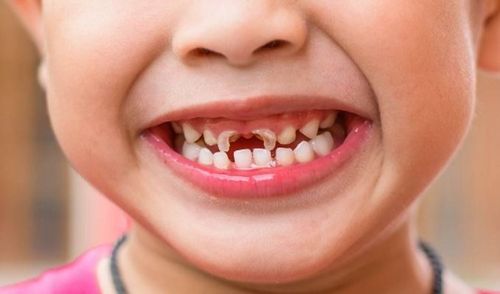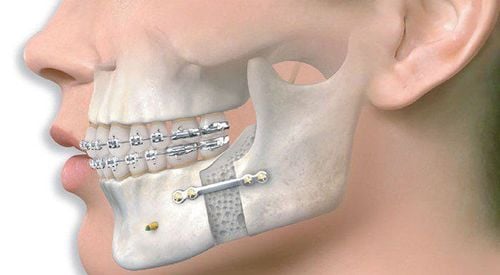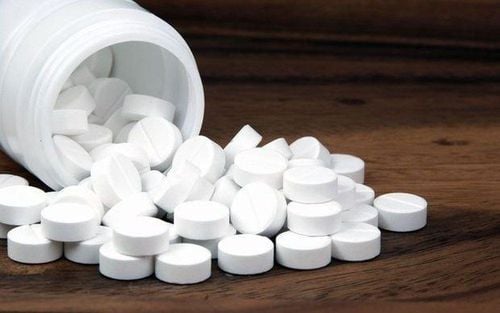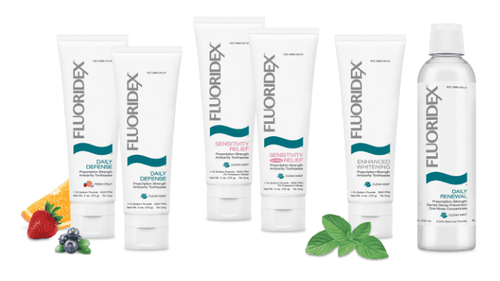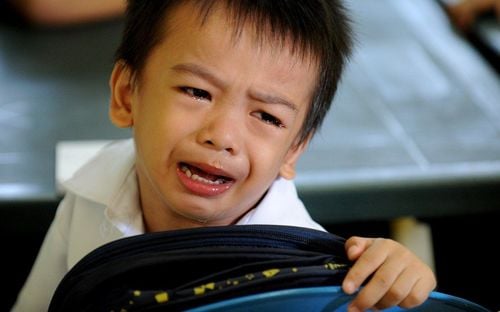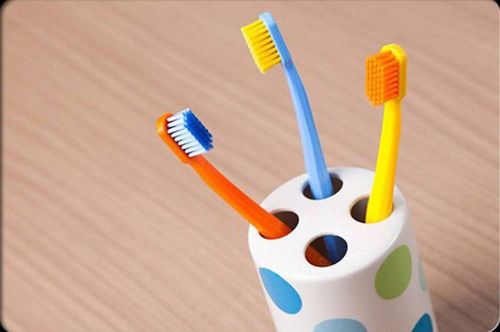This is an automatically translated article.
Many of us often have a mindset that the harder we brush our teeth, the cleaner our teeth will be, so when brushing our teeth, we often use strong force to press and brush really hard. Brushing too hard, brushing too long can lead to oral health problems and put teeth at risk of abrasion, receding gums and many other serious harms.
1. Brushing too hard, too many times a day is good?
If you care about your oral hygiene, you can brush your teeth at least twice a day. Many people believe that brushing teeth after each meal is a good habit to help remove plaque and prevent tooth decay. So if brushing too hard, too many times a day, is it good?
Many of us often have a mindset that the harder we brush our teeth, the cleaner our teeth will be, so when brushing our teeth, we often use strong force to press and brush really hard. In fact, brushing too hard, brushing too long can lead to oral health problems and put teeth at risk of abrasion, receding gums and many other serious harms.
Here are the harms when brushing too hard, too much:
Risk of tooth root abrasion Brushing too quickly will cause plaque on the teeth to remain, the mouth is not clean, but if you brush your teeth for too long and Using too much force will wear away enamel, cement structure and softer dentin. You can tell the signs of root wear by signs such as yellow or brown spots on the teeth near the gum line. Notch - an indentation or V-shape of the tooth along the gum line is also a sign of tooth wear.
Sensitive teeth, tooth sensitivity When you use too much force to brush your teeth, over time when the abrasive toothbrush wears away the enamel, the nerve endings of the dentin layer are exposed. toothache. This sensitivity causes you to feel discomfort, pain when your teeth are exposed to hot, cold, sour, sweet stimuli or when you brush your teeth.
Receding gums, more prone to tooth decay Brushing too many times a day, brushing too hard and improperly is one of the causes of your gums receding. When the gums recede, the softer cement layer of the tooth roots will be exposed and easily cause damage. The exposed cementum has nicks and is easily worn, leading to pain and sensitivity, increasing the risk of tooth decay.
2. Solutions to protect teeth through proper technique and tools
Use a soft-bristled toothbrush: Many people tend to choose a hard-bristled toothbrush, thinking that using a hard-bristled toothbrush will clean their teeth better. However, brushing with a hard-bristled toothbrush increases the risk of tooth wear and receding gums. Use a toothpaste rich in calcium and fluoride to help strengthen tooth enamel. Do not brush your teeth immediately after eating. Wait at least 30 minutes after eating or drinking to brush your teeth, because immediately after eating, the pH in the oral cavity will drop, especially if you have eaten or drank foods containing a lot of acid before such as lemonade or juice. soda, brushing your teeth at this time will make your teeth more susceptible to erosion. Instead, drink water or chew sugar-free gum to freshen your breath while you wait. Use the right, proper technique to brush your teeth. To find out if you're brushing too hard, check your toothbrush. If the bristles have flattened and frayed for several weeks, you're most likely using too much pressure. The solution here is to adjust the brushing force each time you brush your teeth and brush your teeth according to the correct circular motion technique, cleaning teeth in every corner. You need to ensure the time for each brushing is 2-3 minutes. With this period of time, the teeth will be thoroughly brushed. Don't brush your teeth for any reason or brush your teeth for too long, because both of those things are bad for your oral health. Replace your toothbrush periodically at least once every 3 months or when the bristles show signs of lint, wear, or frayed sides. Check out other habits: Brushing too hard isn't the only cause of tooth wear and receding gums. If you have a habit of using your teeth to open bottles, stick nails, pins in your mouth or bite your nails, it will cause tooth wear, dental problems, even broken teeth. Hopefully through the above article, you have understood the harmful effects of brushing too hard, brushing too much or brushing too long. If you have any questions, you can contact Dr. Vinmec for examination and support.
Please dial HOTLINE for more information or register for an appointment HERE. Download MyVinmec app to make appointments faster and to manage your bookings easily.




